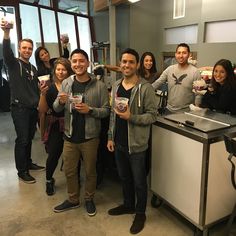
Office Parties
Office parties play a crucial role in fostering a positive work environment, building team morale, and providing employees with opportunities to socialize outside of their regular work routines. These events, when planned thoughtfully, can significantly impact company culture and employee satisfaction.
Types of office parties vary widely, from casual after-work gatherings to more formal annual celebrations. Common occasions include holiday parties, milestone celebrations, team-building events, and retirement send-offs. Each type serves a different purpose and requires careful consideration in planning.
When organizing an office party, it’s essential to consider the diverse preferences and needs of all employees. This includes being mindful of dietary restrictions, cultural sensitivities, and varying comfort levels with social interactions. Offering a range of activities and ensuring the event is inclusive can help make all employees feel welcome and appreciated.
Budget considerations are crucial in party planning. While lavish events can be impressive, often it’s the thought and effort put into the celebration that employees value most. Creative, cost-effective ideas like potluck lunches, office game days, or volunteer outings can be just as effective in boosting morale as more expensive options.
The timing and location of office parties are important factors. Some companies prefer on-site events during work hours to ensure maximum participation, while others opt for off-site venues to create a clear separation from the work environment. After-hours events should be considerate of employees’ personal time and commitments.
While office parties are meant to be enjoyable, it’s important to maintain a level of professionalism. Clear communication about expectations regarding behavior, alcohol consumption (if applicable), and dress code can help prevent uncomfortable situations and ensure the event remains positive for all attendees.
Successful office parties often incorporate elements of recognition and appreciation. Using these events as an opportunity to acknowledge individual and team achievements can reinforce positive behaviors and motivate employees.




